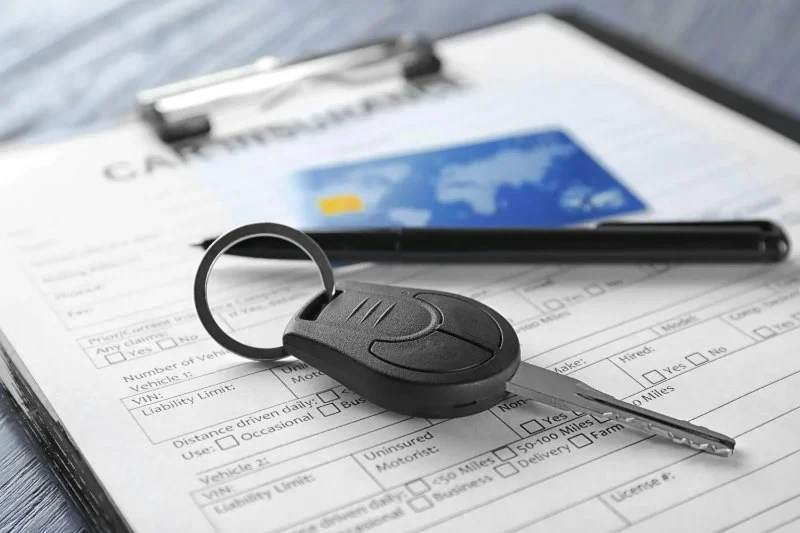
Do Credit Cards Cover Car Rental Insurance? A Complete Guide
- Understanding Credit Card Car Rental Insurance
- Types of Coverage Offered by Credit Cards
- How to Use Credit Card Insurance for Car Rentals
- Exceptions and Limitations of Credit Card Coverage
- Tips for Avoiding Issues with Credit Card Insurance
Understanding Credit Card Car Rental Insurance
Many people are unaware that their credit card may provide rental car insurance coverage, which can help save money when renting a vehicle. Credit card car rental insurance is typically offered as a benefit for cardholders when they use the card to pay for the rental. This insurance may cover things like damage to the rental car or theft, but the specifics vary depending on the card issuer and the cardholder’s terms.
While credit card rental car insurance can be a great way to reduce costs, it’s essential to understand exactly what is covered and what isn’t. Not all credit cards offer the same level of coverage, and it’s crucial to check the details of your card’s benefits before assuming you’re fully protected.
Types of Coverage Offered by Credit Cards
Credit cards generally offer two types of car rental insurance coverage: primary and secondary. Here's what each of them means:
- Primary Coverage: With primary coverage, your credit card insurance will cover the damages or theft of the rental vehicle, and you won’t need to file a claim with your personal car insurance. This type of coverage is more comprehensive and can often be used immediately after an accident or theft.
- Secondary Coverage: Secondary coverage means your credit card insurance will only cover the costs that exceed what your personal insurance covers. You’ll need to file a claim with your personal insurance company first, and your credit card will cover the remainder, up to the policy limits.
Some cards may also offer additional coverage such as:
- Collision Damage Waiver (CDW): This covers the cost of damage to the rental car in the event of an accident.
- Theft Protection: This covers the cost if the rental car is stolen during the rental period.
- Loss of Use: Some cards cover the rental company’s loss of income due to the car being out of commission after an accident or theft.
How to Use Credit Card Insurance for Car Rentals
If you plan to use your credit card’s rental car insurance, it’s important to follow a few key steps to ensure you are fully covered:
- Pay for the Rental with Your Credit Card: To activate the coverage, you typically must use the credit card to pay for the entire car rental.
- Decline the Rental Company’s Insurance: When renting a car, you’ll usually be offered insurance through the rental company. If you want to use your credit card’s coverage, make sure to decline this additional insurance. Accepting both may lead to issues with your coverage.
- Review Your Credit Card Benefits: Before renting the car, review the terms of your credit card’s insurance policy. Check whether your card offers primary or secondary coverage, and any exclusions that may apply (such as rentals in certain countries or types of vehicles).
- Keep Records: In case of an accident or theft, keep all receipts, rental agreements, and any other documents related to the incident. You’ll need these to file a claim.
Exceptions and Limitations of Credit Card Coverage
While credit card insurance can be beneficial, it’s important to be aware of its limitations and exclusions. Some common exceptions include:
- Exclusion of Certain Types of Vehicles: Many credit cards do not cover certain types of vehicles, such as luxury cars, trucks, motorcycles, or exotic cars.
- Country Restrictions: Some credit cards exclude coverage for rentals in certain countries or regions, especially if the country is deemed high-risk for theft or other factors.
- Duration of Coverage: Coverage may be limited to a certain number of rental days, typically 15-30 days. If you are renting for a longer period, you might need to seek additional insurance.
- Personal Injury: Credit card rental insurance usually does not cover personal injuries sustained during an accident. You’ll still need to rely on your personal health insurance for medical coverage.
It’s important to carefully read the fine print of your credit card’s insurance policy to avoid surprises. If you’re unsure about the details, call the customer service number on the back of your card to clarify.
Tips for Avoiding Issues with Credit Card Insurance
While credit card rental insurance can save you money, there are a few steps you can take to avoid issues with your coverage:
- Check Your Card’s Benefits: Not all credit cards provide rental car insurance, so make sure your card offers the coverage you need before you rent a car.
- Understand the Coverage Limits: Be aware of the maximum coverage your card provides and any exclusions or restrictions that apply.
- Keep Proof of Payment: Keep detailed records of your car rental payment and the rental agreement in case you need to file a claim.
- Consider Supplemental Insurance: If your credit card doesn’t cover all aspects of rental insurance, consider purchasing supplemental coverage to fill the gaps.
Following these tips can help ensure that you don’t run into problems while using your credit card for rental car coverage.







 Budget Car Rental3.0 (83 reviews)
Budget Car Rental3.0 (83 reviews) National Car Rental4.0 (1354 reviews)
National Car Rental4.0 (1354 reviews) Enterprise Rent-A-Car4.0 (2868 reviews)
Enterprise Rent-A-Car4.0 (2868 reviews) Budget Car Rental2.0 (72 reviews)
Budget Car Rental2.0 (72 reviews) Hertz Car Rental3.0 (3749 reviews)
Hertz Car Rental3.0 (3749 reviews) Avis Car Rental2.0 (131 reviews)
Avis Car Rental2.0 (131 reviews) How Much Does a Car Rental for a Week Cost? A Comprehensive Guide for Travelers
How Much Does a Car Rental for a Week Cost? A Comprehensive Guide for Travelers How to Deal with Overbooking Issues at Car Rental Locations
How to Deal with Overbooking Issues at Car Rental Locations How to Get to SeaTac Car Rental Facility from Airport Easily
How to Get to SeaTac Car Rental Facility from Airport Easily What is the Best Car Rental Company for Your Next Trip?
What is the Best Car Rental Company for Your Next Trip? Can I Extend My Sixt Car Rental? What You Need to Know Before You Do
Can I Extend My Sixt Car Rental? What You Need to Know Before You Do What Is Fox Car Rental and How Does It Compare for U.S. Travelers
What Is Fox Car Rental and How Does It Compare for U.S. Travelers